Determine the current in each branch of the network shown in Fig. 3.24
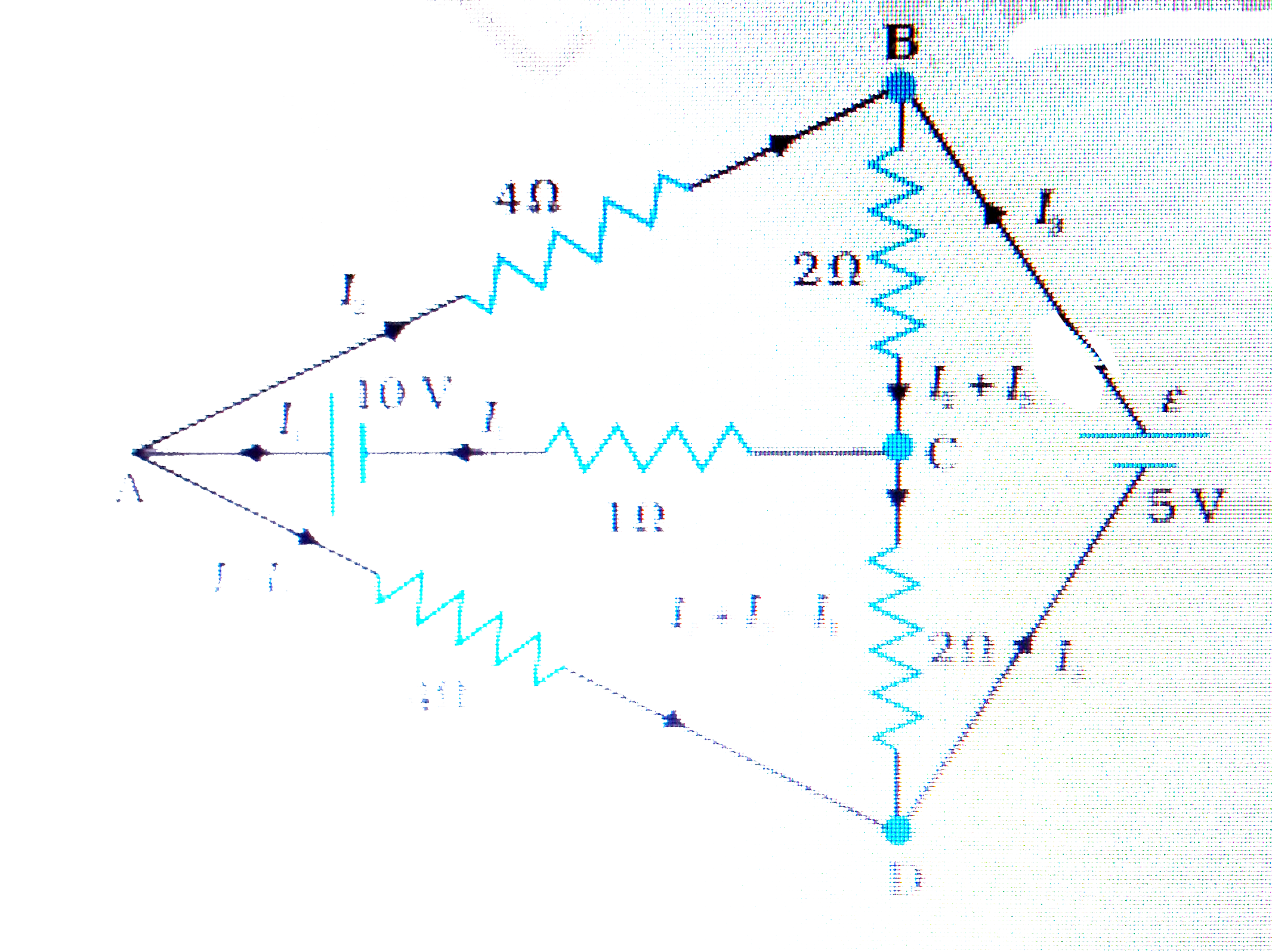
Each branch of the network is assigned an unknown current to be determined by the application of Kirchhoff’s rules. To reduce the number of unknowns at the outset, the first rule of Kirchhoff is used at every junction to assign the unknown current in each branch. We then have three unknowns I1,I2andI3 which can be found by
applying the second rule of Kirchhoff to three different closed loops. Kirchhoff’s second rule for the closed loop ADCA gives
10−4(I1−I2)+2(I2+I3−I1)−I1=0
that is, 7I1−6I2−2I3=10
For the closed loop ABCA, we get
10−4I2−2(I2+I3)−I1=0
that is, I1+6I2−2I3=10
For the second loop ABCA, we get
10−4I2−2(I2−I3)−I1=0
that is, I1+6I2+2I3=10
For the closed loop BCDEB, we get
5−2(I2−I3)−2(I2+I3−I1)=0
That is 2I1−4I2=4I3=5
Equations (3.80 a, b, c) are three simultaneous equations in three unknowns. These can be solved by the usual method to give
I1=−2.5A,I2=58A,I3=178A
The currents in the varlous branches of the network are
AB:58A,CA:212A,DEB:178A
AD:178A,CD:0A,BC:212A
It is easily verified that Kirchhoff’s second rule applied to the remaining closed loops does not provide any additional independent equation, that is, the above values of currents satisfy the second rule for every closed loop of the network. For example, the total voltage drop over the closed loop BADEB
5V+(58×4)V−(158×4)V
equal to zero, as required by Kircgoff's second rule.
Topper's Solved these Questions
Similar Questions
Determine the current in each branch of the network shown in figure.
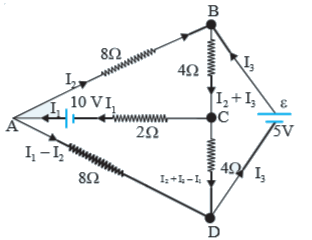
View SolutionDetermine current in each branch of the network shown in figure

View SolutionFind the current in each branch of the cirucit shown in figure
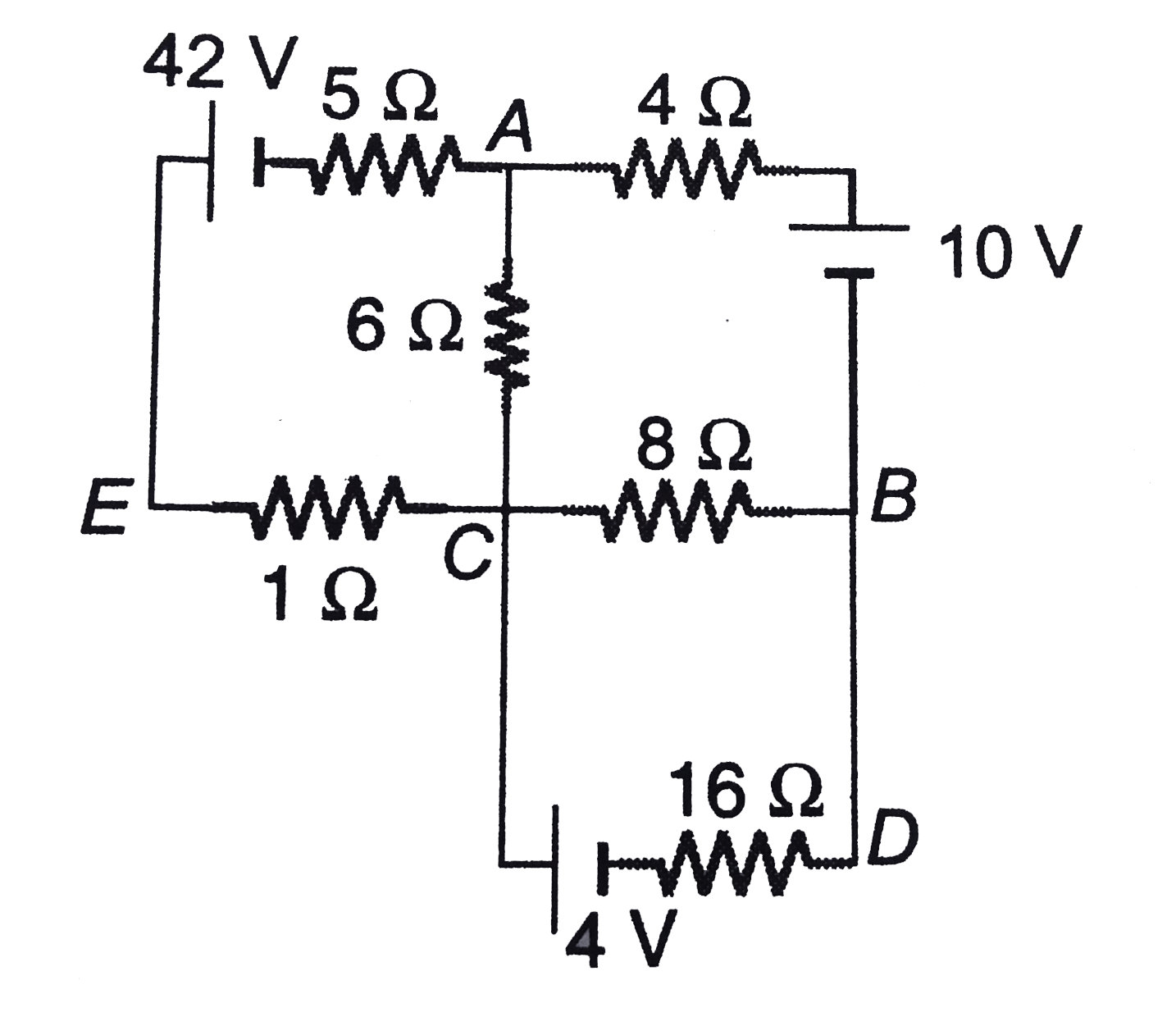
View SolutionFind the current in each branches of the circuit.
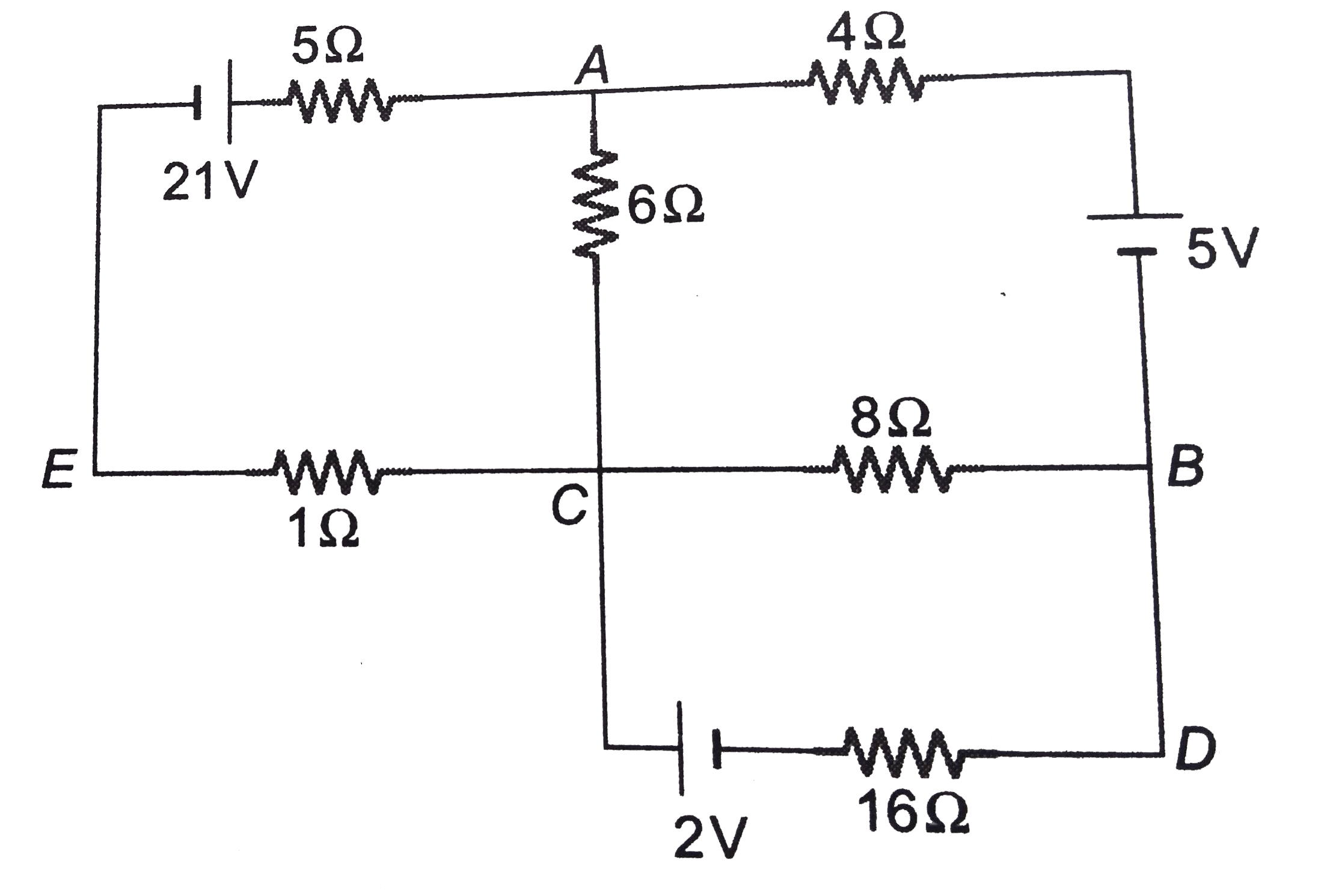
View SolutionDetermine the equivalent resistance of networks shown in Fig. (i) and (ii).

View SolutionThe current in the branch of a circuit shown below is

View SolutionDetermine the currents I1,I2,andI3 for the network shown below
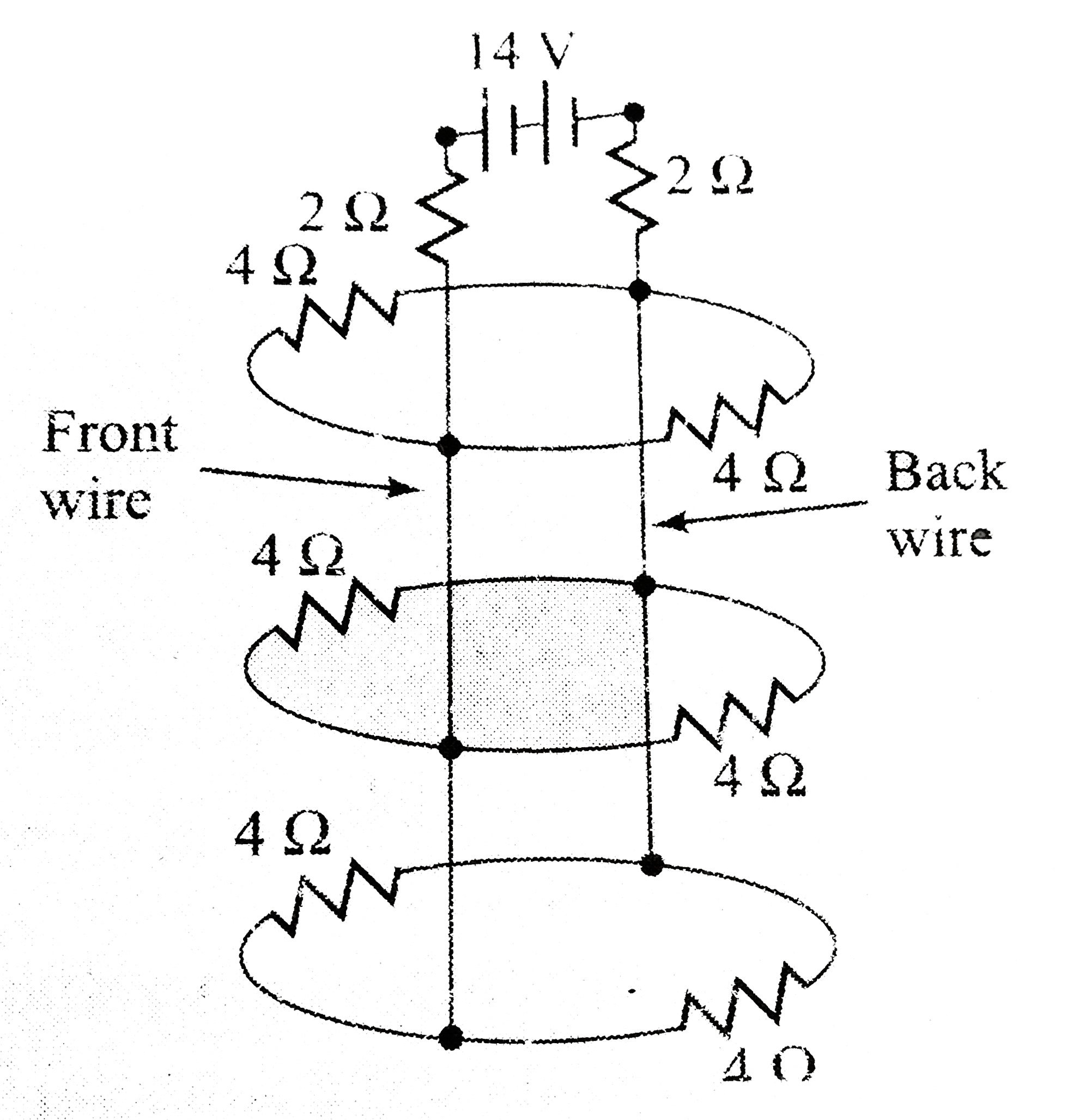
a. I1=……….,b.I2=………….,c.I3=…………….
View Solution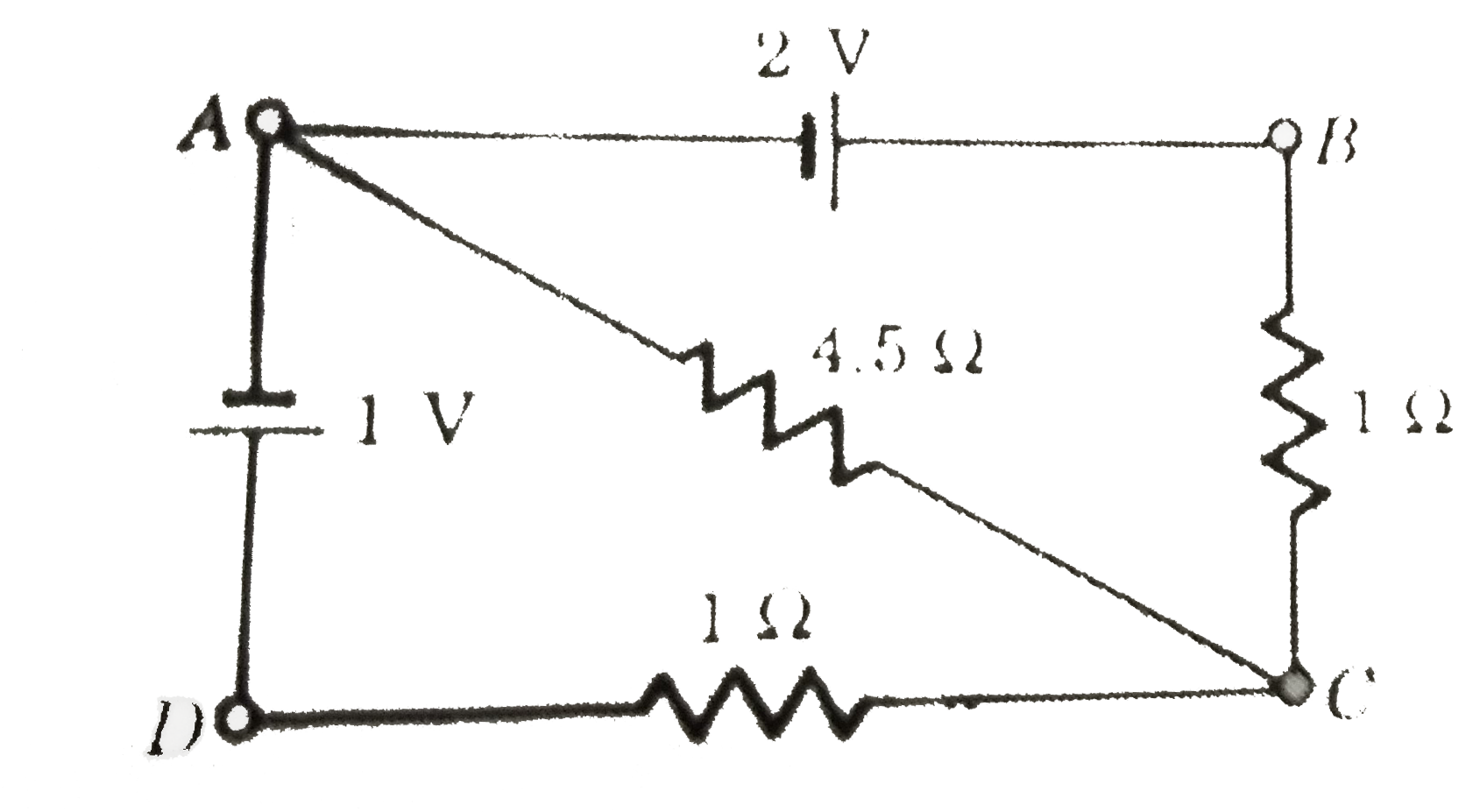
calculate the current flowing in each of the resistances of the network shown in figure. The internal resistance of each cell is negligible.
View Solution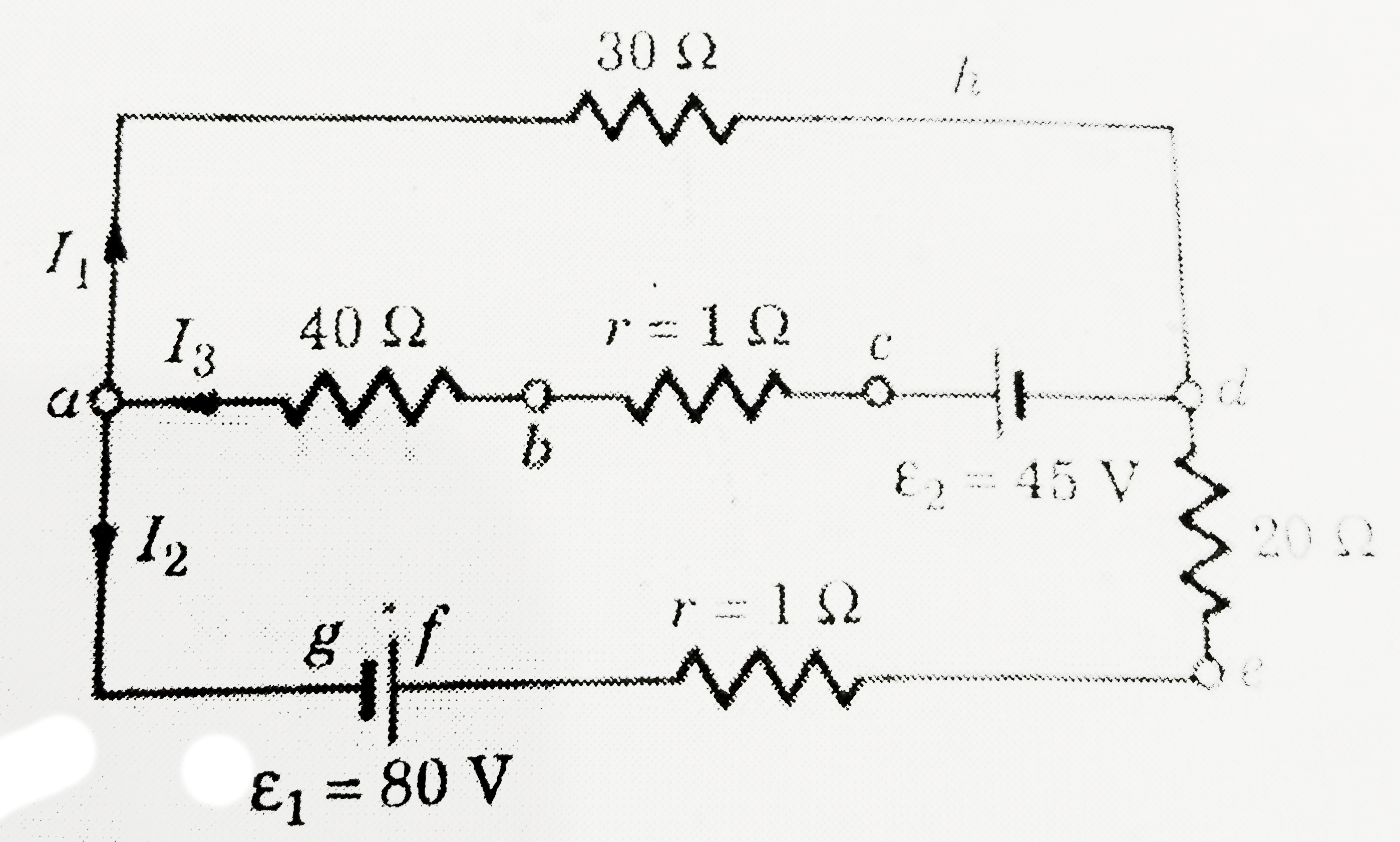
Determine the currents I1,I2andI3 from the network shown in figure.
View SolutionDetermine the current through the resistancees of the circuit shown in Fig.. The each p-n junction used is ideal one.
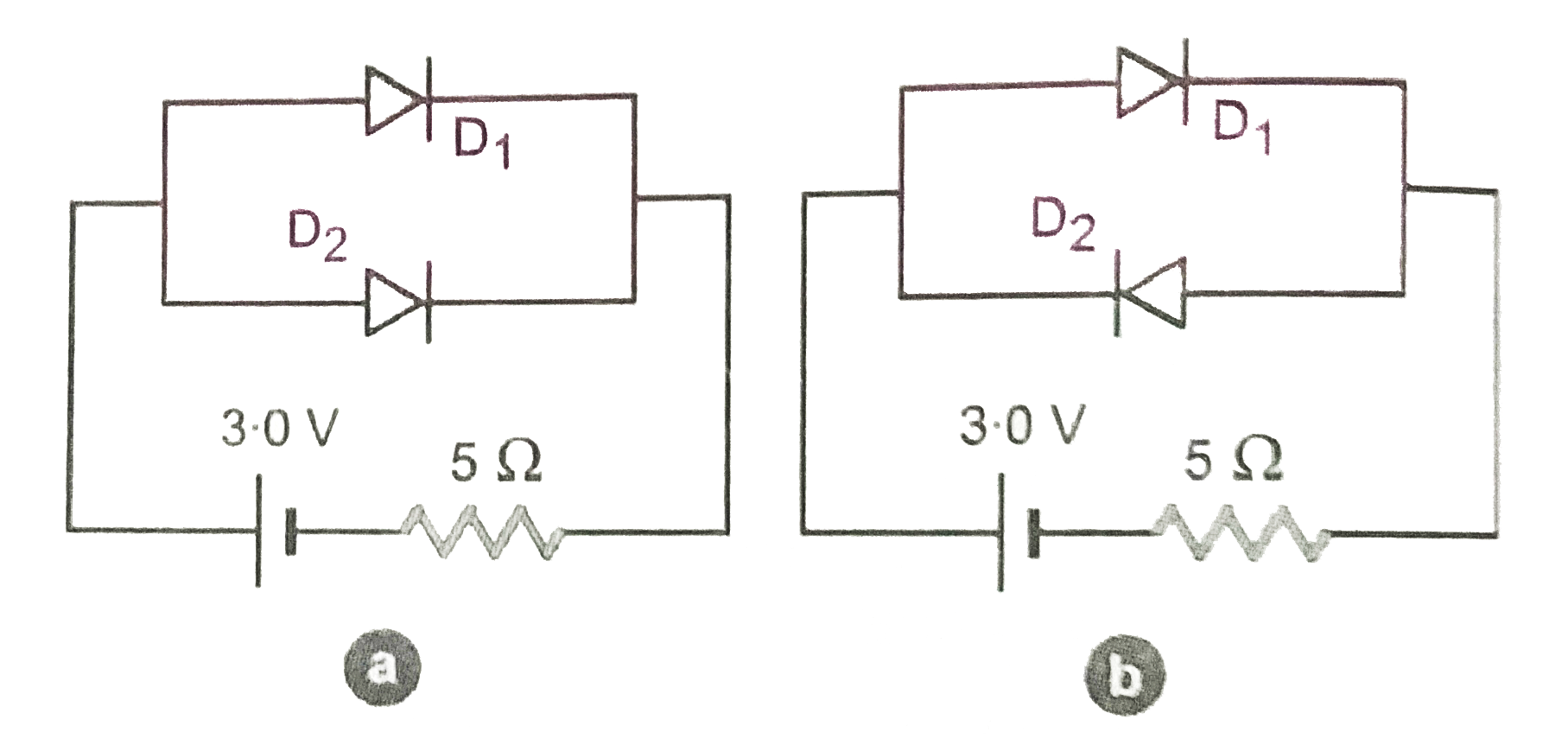
View Solution
